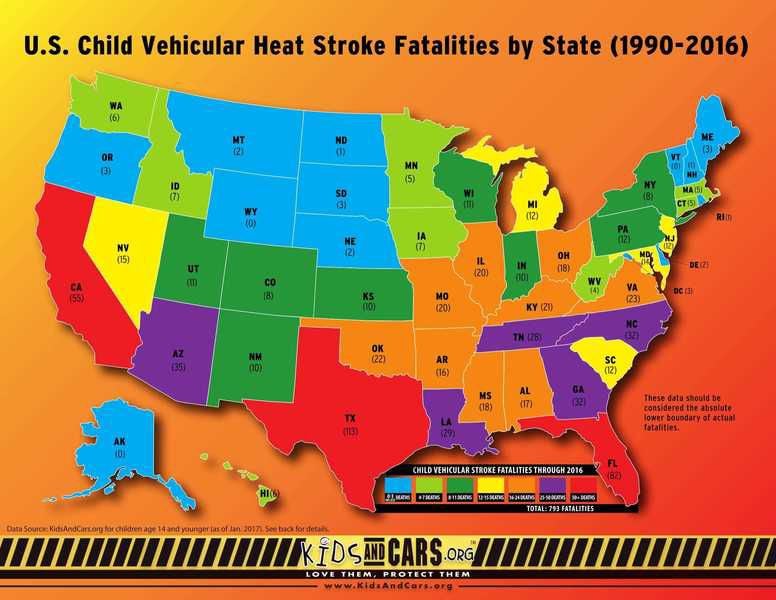By Jessie Wagoner
jessie@emporia.com
jessie@emporia.com
Updated Aug 1, 2017

National Child Vehicular Heatstroke Prevention Day activities were held nationwide Monday in hopes of preventing child deaths associated with being left in hot cars. Already this year 30 children have died — two in Arizona over the weekend — after being left in hot cars. “No one thinks this can happen to them and that is why technology along with education is critical to preventing these tragedies,” Janette Fennell, founder and president of KidsAndCars.org said. “This can and does happen to the most loving, responsible and attentive parents; no one is immune. Since 1990, over 800 children have died in these preventable tragedies. An average of 37 children die needlessly every year from vehicular heatstroke.” Emporians are not immune from the risks of leaving their children in hot cars. Monday morning, shortly before 9 a.m., the Emporia Police Department was called to the 1000 block of Merchant Street to respond to a report of a small child locked inside a car. Just a quick dash into the gas station or grocery store can prove fatal for children left behind in vehicles — even for just a few minutes. Experts have found the inside of a vehicle heats up quickly. Even with the windows cracked, the temperature inside a car can reach 125 degrees in minutes. Eighty percent of the increase in temperature happens in the first 10 minutes. Even on days when the temperature doesn’t seem hot it can prove fatal for a small child. Children have died from heatstroke in cars in temperatures as low as 60 degrees. Children have a more difficult time regulating their body temperature than adults. A child’s body can overheat three-to-five times faster than an adult body. Additionally, children are most often left in cars while strapped into car seats which hold the heat and limit the child’s movement. Monday, U.S. Senators Richard Blumenthal (D - Connecticut) and Al Franken (D - Minnesota) announced the introduction of the Helping Overcome Trauma for Children Alone in Rear Seats Act (HOT CARS Act of 2017). The legislation addresses the tragic deaths of children unknowingly being left in vehicles. It requires the U.S. Department of Transportation to issue a final rule within two years requiring new vehicles to be equipped with a visual and auditory alert system to remind parents to check the rear seat. The Senate bill also requires a study on retrofitting cars with reminder systems. Experts advise parents to always check the back seat before exiting their vehicle. They also offer the following tips to help reduce the risk of leaving a child in a hot car: Place something in the backseat with the child like a cell phone, purse or wallet to serve as a reminder. Keep the vehicle locked at all times, including when it is parked in the garage, to prevent children from crawling into the vehicle without parental knowledge. Create a clear plan with child care providers to contact both parents if a child does not arrive on time to child care. Use drive-thru services when possible. Keep car keys and remotes out of the reach of children. Anyone who sees a child unattended in a vehicle is encouraged to call law enforcement immediately

